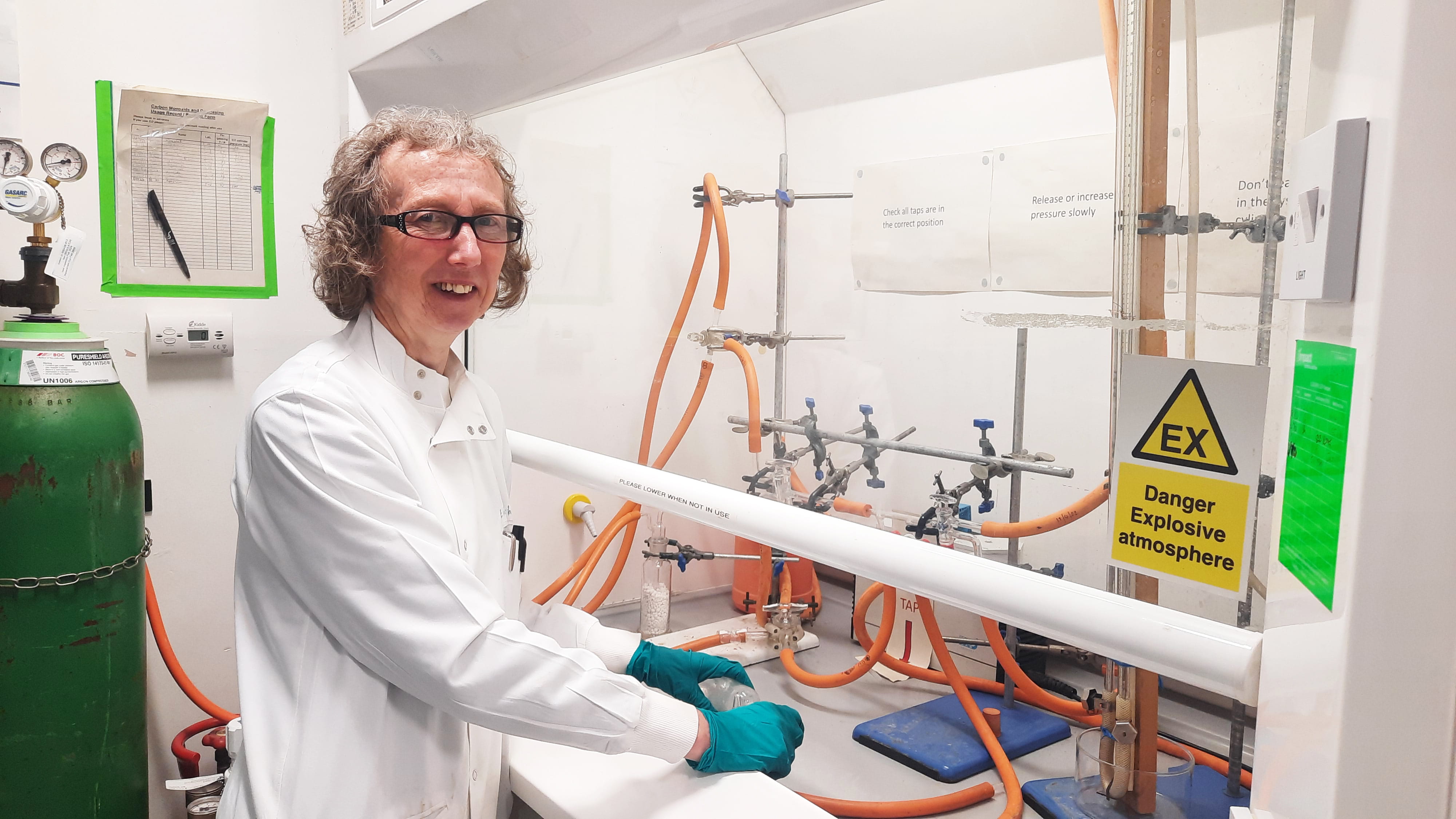Technician blog – Elizabeth Welbourn
As part of our Technician Commitment award, we are showcasing the valuable role our technicians play across the University in helping Essex deliver excellence in research and excellence in education. Here, Dr Elizabeth Welbourn explains her role as a Technician in the School of Life Sciences and being recently designated a Registered Scientist by the Royal Society of Chemistry.

What was your career background before coming to Essex?
After my first degree in Natural Sciences, specialising in Biochemistry, I taught chemistry in secondary schools for about 25 years. This became frustrating as the emphasis changed and I was lucky enough to be able to leave teaching and take a PhD here at Essex, thanks in many ways to Professor Chris Cooper. It was so exciting to be working in a research lab and discovering completely new things that nobody else in the world knew. When I had finished my PhD I took a part-time technician position in the lab where I had done my PhD.
What is your role at Essex and what are your main duties?
I am responsible for the day-to-day running of the metalloprotein research lab. We work on a variety of proteins, but mostly haem proteins like haemoglobin. I deal with any safety-related issues and carry out safety inductions for any new students or staff before they are allowed to work in the lab. If there are problems with equipment, I am the person that works out if we can mend it or else get someone in to solve the problem. My role is to enable and support staff and students to get on with their lab work as efficiently as possible.
What do you enjoy most about your role?
There is so much variety in what I do. I usually come into work with an idea of what I am going to do that day, but it usually changes with circumstances. There might be a problem with a piece of equipment or somebody wants help to do a particular protocol. I can be doing quite complex science in the morning and then tidying up and wiping down a bench in the afternoon. It is very rarely boring. The other really important part is the team of technicians I work with. We are so supportive of each other.
What are the main challenges of your job?
There is always so much to do, some of it reactive and some longer term. It can be difficult to find time to get on with the longer-term projects and planning. My to-do list just gets longer each day and I can’t always help lab members as much as I would like.
Why did you apply to become a Registered Scientist?
The Technician Commitment is an initiative led by the Science Council and supported by over 115 universities, research institutions and funding bodies, set up to address the key challenges facing technical staff. There are four target areas – visibility, recognition, career development and sustainability. To address this, technicians are being encouraged to obtain professional registration with the Science Council. I have been championing technicians since I started working here, trying to set up networks and generally increase the recognition of technicians in the university. When national Professional Recognition was set-up, I thought that I ought to lead from the front and apply. By doing so, I hope that I can show other technicians that it is possible.
What does it mean to you to now be designated a Registered Scientist?
I can put RSci after my name! More importantly, it shows that I have been able to demonstrate that I work in a professional manner. Having got the designation, I am held accountable for my work and adherence to professional and ethical standards. I have to keep up my skills and knowledge through CPD and can be asked to prove this at any time.
